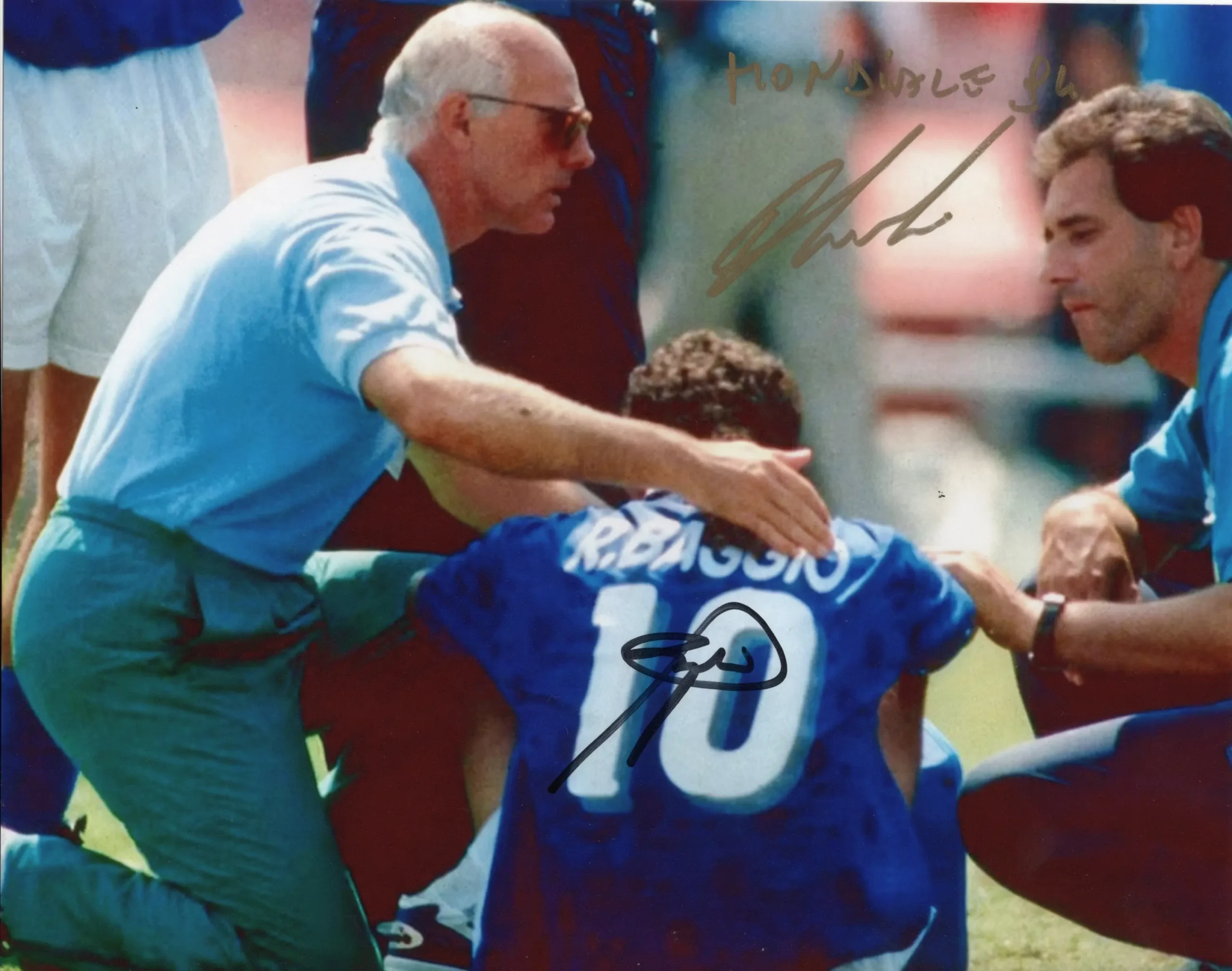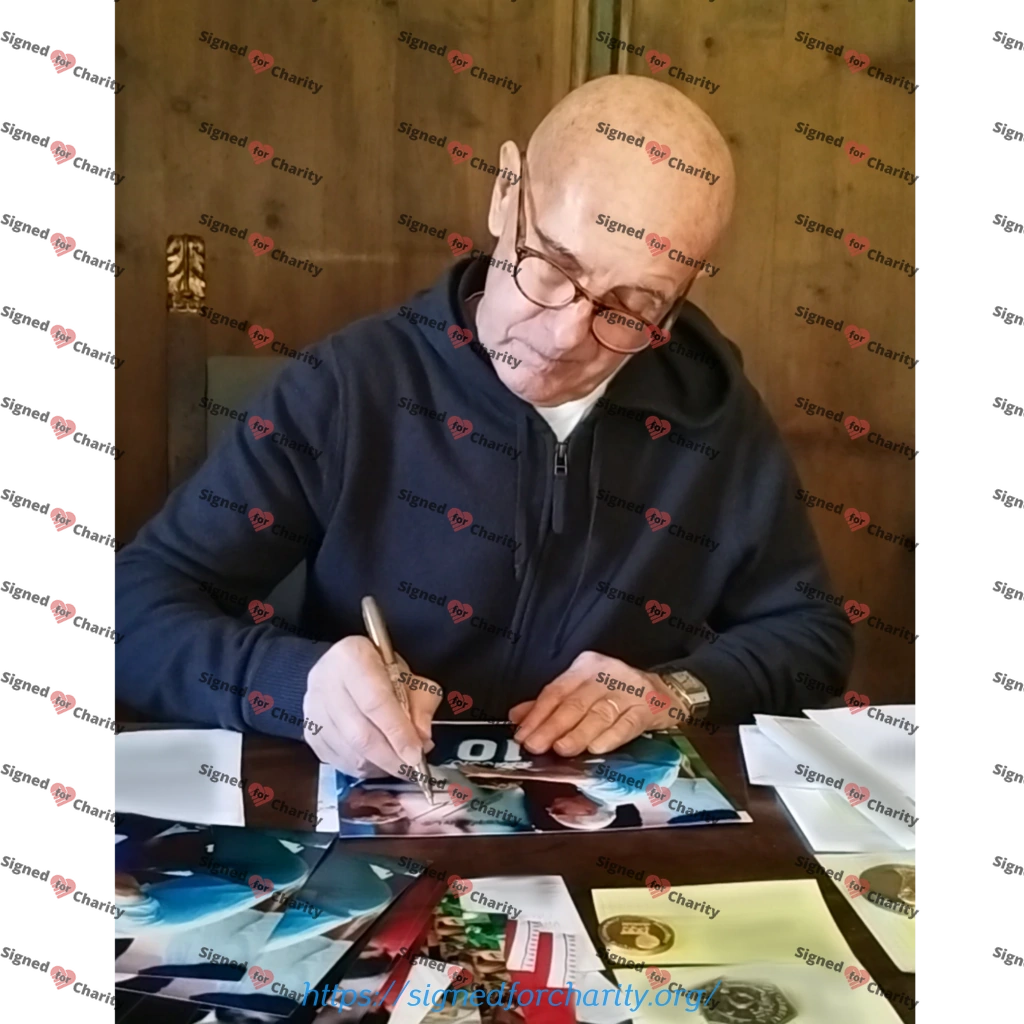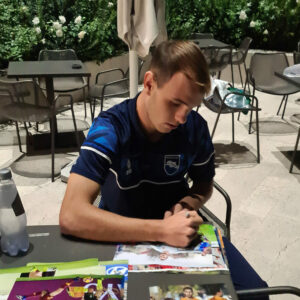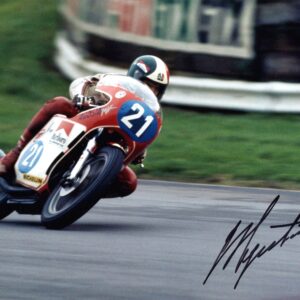Arrigo Sacchi and Roberto Baggio – Signed Photo – Soccer (Italy National Football Team)
Foto con autografo di Arrigo Sacchi e Roberto Baggio.
Dimension: 20 Cm x 25 Cm (Appr.) – 8×10 Inches (Appr.)
Team: Italy National Football Team
Date and Place of Signing (Arrigo Sacchi): March 11, 2024 in Ravenna, RA (Italy)
Date and Place of Signing (Roberto Baggio): November 29, 2024 in Altavilla Vicentina, VI (Italy)
This is not a vintage photo or old one. This photo is new, printed and signed in recent years and the signature is original.
🖊️ Personally hand-signed under our official supervision
⭐ Exclusive collectible with all proceeds donated to charity
$199,00
-
100% Secure Checkout
-
Receive one complimentary surprise gift with every order
-
International Tracked Shipping
🇮🇹 Le immagini presenti sul sito sono utilizzate esclusivamente a fini documentali e descrittivi degli oggetti fisici originali coinvolti in iniziative di raccolta fondi. La piattaforma non svolge attività di vendita commerciale: le somme versate costituiscono erogazioni liberali destinate esclusivamente alle attività benefiche di History Life Onlus. Tutti i diritti sulle immagini appartengono ai rispettivi titolari.
🇬🇧 The images displayed on this website are used solely for documentary and descriptive purposes of original physical items involved in fundraising initiatives. The platform does not engage in commercial sales; all contributions are voluntary donations exclusively supporting the charitable activities of History Life Onlus. All image rights belong to their respective owners.






